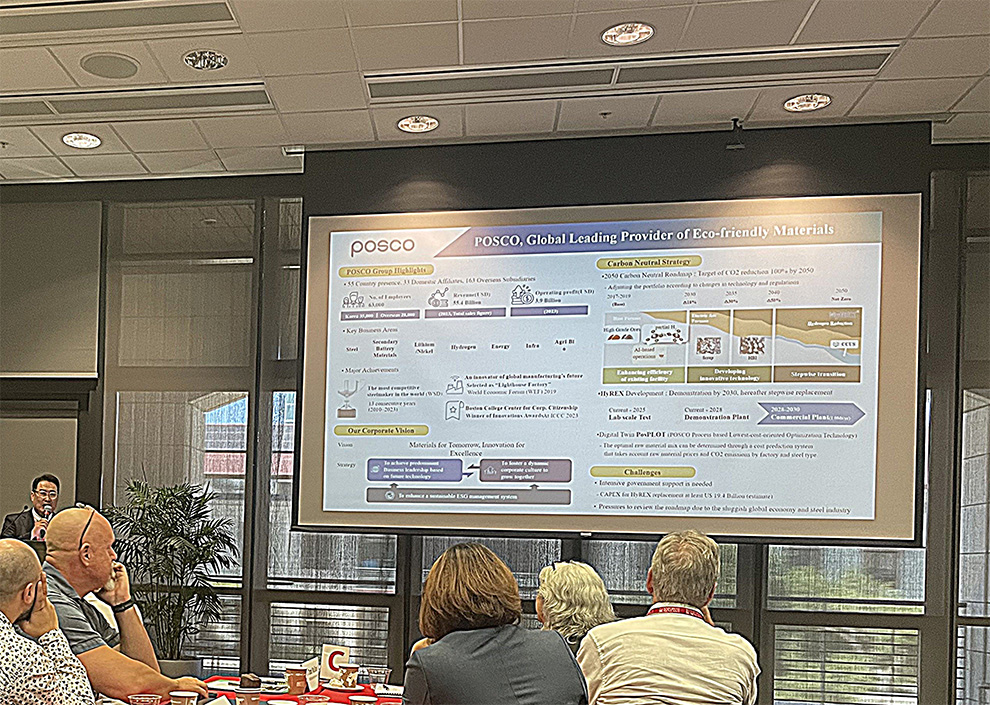Held over two days starting July 8, the summit invited 40 change leaders from 20 countries worldwide
Introduced POSCO’s new management vision, key business areas, and Carbon Reduction strategy
POSCO participated in the first Stanford Sustainability Summit (S3), hosted by Stanford’s Graduate School of Business and Sustainability, which took place over two days starting on July 8th. During the event, POSCO shared its efforts and achievements in sustainable management.

▲ At the Stanford Sustainability Summit, which took place over two days starting on July 8th, Kyeong-chan Kim, President of POSCO America, presented POSCO’s sustainable management initiatives.
The inaugural Stanford Sustainability Summit brought together global changemakers in sustainability to discuss solutions for climate change, agricultural and food security, population issues, and poverty, seeking pathways for our society’s sustainable development.
Stanford University invited 40 entities from 20 countries—including entrepreneurs, nonprofits, policymakers, and researchers—who lead change and innovation towards a sustainable society to this summit. Among the large corporations invited were POSCO, Tata, SK, and Orsted.
Selected as a changemaker for this summit, POSCO has been recognized for leading the development of hydrogen reduction steelmaking technology as a steelmaker with world-class competitiveness, contributing to creating an sustainable future.
Representing POSCO at the summit, Kyeong-chan Kim, President of POSCO America, presented the new management vision of “Materials Creating Future, Innovation for World-Class,” covering POSCO’s key business areas, management strategies, and Carbon Reduction strategies. He also emphasized the importance of materials and energy for developing a sustainable industrial ecosystem and stressed the need for national consensus and institutional support to advance POSCO’s sustainable future materials business.
Professor William Barnett’s research team at Stanford University has formally included POSCO’s sustainable management and achievements as a business case study. Additionally, POSCO America is collaborating with the Management Accounting Association of Korea and Professor Lee Moo-won from Yonsei University to submit a case study on POSCO’s cost accounting system, PosPLOT, developed considering carbon costs, for inclusion in Harvard Business School’s case studies.
